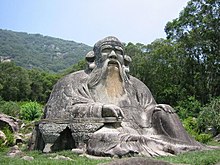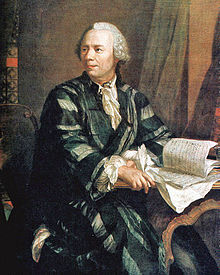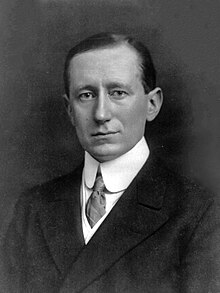Ten years and one million articles: WikiProject Biography






On this day five years ago, the WikiProject Report debuted as a new Signpost column with an overview of WikiProject Biography. Today, we're celebrating two milestones: five years of the WikiProject Report and the tenth birthday of our first featured project.
WikiProject Biography is by far the largest WikiProject on Wikipedia, with over one million articles under the project's scope. As a comparison, WikiProject Biography is three times larger than Wikipedia's second largest project, and if WikiProject Biography were split into its 14 subprojects and work groups, it would still make the list of the 20 largest WikiProjects... four times.
Founded in October 2002 following early discussions about how to format birth and death dates, WikiProject Biography served mainly as a place to collect links to discussions about style guides and naming conventions. By 2005, it had become a fully functional project with ten members, a weekly collaboration, and a growing number of subprojects. When we featured the project in 2007, it had grown to 400 members and published a newsletter. Today, the number of members is nearing 800, but the newsletter, collaborations, and many of the subprojects have lapsed into inactivity. We interviewed Kaldari, Road Wizard, and John Carter.
What motivated you to join WikiProject Biography? Have you contributed to any of the project's Featured or Good Articles?
- Kaldari: I first became involved in WikiProject Biography around 2006, mainly due to my interest in Wikipedia 1.0. Many of the first articles I worked on were biographies, and I've always enjoyed working on them, partially due to their simplicity. Unlike other types of articles, they have a very well defined scope and a clear set of preferred sources (academic biographies). They also tend to be less contentious than other articles, with the obvious exception of current politicians. I've contributed to 2 Featured bio articles, Emma Goldman and Mary Wollstonecraft, and one Good bio article, Anne Dallas Dudley.
- Road Wizard: I stumbled into the project in 2008 after working on politician biographies for another project I am involved with. As I was working on biographies anyway I thought that I might as well sign up and make it official. My main contributions to the project are giving initial assessments for articles, making suggestions on how to move the articles towards B-class and answering calls for assistance on the project's talk page. Hopefully I have contributed to good or featured articles but it would probably have been in the initial stages to start the editors off in the right direction.
- John Carter: I have to say I don't know exactly what got me first involved to a degree with this project, because that was some time ago. I agree with Kaldari above that one of the main appeals of biographical articles is their relative simplicity. The subject area is in general much more clear-cut than many other articles. This is not saying that some biographies of disputed people from early history are not also at least a bit contentious (Jesus comes to mind), but the same holds true for most non-biographical articles related to those eras as well.
As Wikipedia's largest project, how does WikiProject Biography cope with the massive quantity of articles under its scope? Why do biographies make up such a large component of Wikipedia's articles?
- Road Wizard: Why are there so many biographies? Every article on Wikipedia involves people in one way or another; if it is about a book then someone wrote it; if it is about a natural phenomenon then someone observed it. Biographies are a logical extension of the encyclopaedia - if you are reading about Pachelbel's Canon, curiosity would lead you to the question, "Who was Johann Pachelbel?" and the biography article is born.
- John Carter: Road Wizard is basically right about why there are so many biographies. How the project deals with them is a bit of a question, in large part because of the huge number. Some groups of biographies, like those covered in the Actors and Filmmakers subproject, are actually fairly closely related in some sense and have significant overlap. Other groups, like the Royalty group, contain a lot of articles which aren't as clearly directly related, given that the royalty of Papua New Guinea and the UK really don't have a lot of direct relationship with each other.
The members of WikiProject Biography have identified 200 articles as core biographies. What is the purpose of this designation, how were the articles selected, and has there been a concerted effort to improve these articles? Are there any plans to change or expand the core biographies?
- Kaldari: WP:COREBIO was a joint project between Wikipedia 1.0 and WikiProject Biography. The purpose was to choose the 200 most important biographies on Wikipedia so that we could prioritize which ones to improve for the offline release version of Wikipedia. Obviously creating such a list is fraught with problems. We studied numerous other published lists of "important people", and tried to keep the list balanced in terms of subject areas (history, philosophy, literature, sports, entertainment, science, etc.) and cultural representation. It took months to reach agreement, and in the end I don't think anyone was 100% happy with it (which might be a good sign). I think spending any more effort on refining the list would be a waste of time, as it would be far more useful to work on the actual articles. Only about half of them are B quality or higher, which is a travesty.
- John Carter: I think one of the reasons for the selection of the core biographies was that these are biographies of people whose significance in human history is such that their biographies, and related subarticles, contain some of the most important information for any encyclopedia. The down side of that, of course, is that there can be, and sometimes are, serious disagreements about what is most significant about them, and thus what should be given the most weight in the articles. For example, Mohammed was a major political, philosophical and religious leader of a very large group, and it can be hard to determine what related material on his actions and impact deserves what degree of attention in that main article.
How often does the project deal with editors attempting to write autobiographical articles? What are some strategies Wikipedians can use to communicate policies regarding conflict of interest, notability, and reliable sourcing without biting the newcomer?
- John Carter: Actually, so far as I have seen, we don't have that many of these as we used to. I think some people have begun to catch on about how we frown on that here. I'm thinking we may have gotten important enough that a lot of PR people and celebrities have learned that, ultimately, they might get some bad press for trying to do so. For some lesser-known individuals, of course, it could still be a problem, but I think most of the experienced editors around wikipedia in general more or less know some of the warning signs of COI editing.
What are some common concerns about biographies of living persons (BLP) that the project has handled in the past? How can editors, regardless of whether they're members of WikiProject Biography, ensure Wikipedia's biographies follow the BLP guidelines?
- Road Wizard: When I first joined the project, BLP problems were a known issue but just one of many factors we had to deal with. Issues were raised at the project talk page and we would investigate. However, I think Wikipedia came under external pressure on a few badly handled BLP cases and consensus was formed to take a harder line on unreferenced BLP articles. Most of the problem cases we used to deal with are now either deleted before they reach us or are perhaps raised at Wikipedia:Biographies of living persons/Noticeboard instead.
- In terms of how editors can help to follow the BLP policy, the key is to always include citations to reliable sources. New editors are often upset that their contributions are deleted, but if they can follow those two guidelines then their text stands a much greater chance of retention.
Have you run into any strange experiences working on articles about people who disappeared or otherwise have an unknown date of death?
- Road Wizard: I am not too sure what you are meaning by "strange experiences" - as far as I know I haven't been haunted while investigating the death of an article subject.
- Back on a more serious note though, there is a big difference between modern and historical biographies. In modern times you can often pinpoint a person's death to a time of day due to the abundance of sources. For older biographies you are entirely dependent on how well the information was recorded in the few available sources - Charles Molyneux, 1st Earl of Sefton, for example, died sometime around late December 1794 or January 1795. I doubt that we will ever get a more precise date.
What tools do users have to search, sort, and analyze biographical data? How does the project view the use of infoboxes, succession templates, and persondata?
- Kaldari: Right now none of our metadata solutions are very elegant. We have infoboxes which tend to get overly bloated and crufty (see George Washington), persondata which is theoretically useful, but rarely actually used, and various other templates that encode metadata in numerous other non-standard ways. A few people have hacked together ways to use this data, but the results are somewhat unpredictable. For example, one guy used the influenced and influences parameters from Infobox philosopher to construct a graph of the relative importance and connectedness of all the philosophers in history.[1] Unfortunately, the data they used wasn't very reliable since the standards for what was included in these parameters varied considerably between articles and some articles didn't use philosopher infoboxes at all. I'm hoping that this situation will be rectified by the new Wikidata project, which should provide standardized ways to associate metadata with articles (even across different projects).
What are the project's most urgent needs? How can a new contributor help today?
- John Carter: Clearly, it would help a lot if we had a bit more attention to the major articles, like the core biographies, and other biographical articles on the broader range of highly important biographies. I myself might like to see a contest start, maybe in the next month or so, to maybe work on those articles in the core group, with maybe allowing those who bring one of those articles up to a given degree of quality allowed to nominate another article to perhaps be included in a broader "core" group. If anyone likes that idea, or would like to propose any other contest-like efforts to get the content developed, I'm sure we would all like to see them. We always need editors reviewing the newer biographical articles to see which might have some BLP issues, and tagging them appropriately. Lastly, there are a rather huge number of extant biographical articles of all sorts, including biographies of living persons, which are in rather poor shape and could use improvement.
Next week's article should have a favorable reaction. Until then, experiment with old formulas in the archive.


Discuss this story